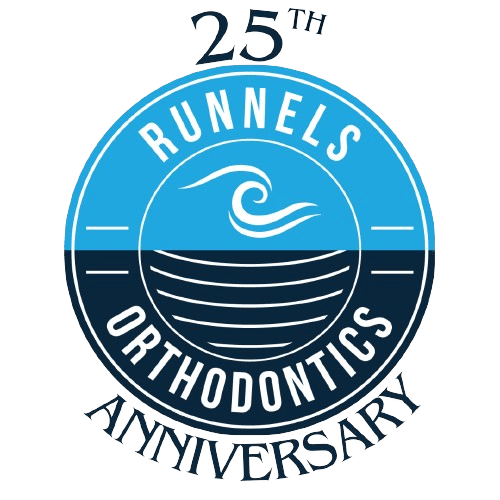For many, not starting the day with a cup of coffee is unimaginable. However, this morning ritual can have unwanted side effects, such as stained teeth, which may lead to the desire for teeth whitening. At Runnels Orthodontics in Destin, FL, we can help reverse some of the effects your favorite warm beverage may have had on your teeth.
Teeth whitening can be an effective solution for coffee-induced stains, restoring the natural appearance of your teeth. We take the time to assess your specific needs and dental health to determine if teeth whitening is the right option for you. It’s not just about improving the look of your teeth, but also ensuring the treatment aligns with your overall dental health.
A Closer Look at Teeth Stains
Types of Teeth Stains
There are several types of stained teeth; they typically fall into three categories: extrinsic, intrinsic, and age-related. Extrinsic stains are those that appear on the surface of the teeth as a result of consuming certain foods, beverages, or tobacco. Intrinsic stains, on the other hand, originate within the tooth, often from medication use, childhood illness, or trauma. Age-related stains are a combination, as dentin naturally yellows over time, and enamel thins, allowing dentin’s color to show through.
Why Teeth Get Stained
The structure of our teeth makes them susceptible to staining. Enamel, the outermost layer, may appear smooth but is actually porous. These pores can hold particles from everything we consume, leading to stained teeth. Over time, the natural wear and tear on enamel can exacerbate this process, making it easier for staining agents to penetrate.
Coffee and Teeth Stains
Coffee contains ingredients such as tannins and polyphenols, which contribute to its flavor but also cause staining. These compounds stick to tooth enamel and can become embedded in the pores, leading to noticeable stained teeth. Frequent coffee drinkers might observe a gradual change in the color of their teeth, primarily due to these staining agents.
What Else Can Stain Teeth?
Besides coffee, there are various other substances that can cause stained teeth. These include tea, red wine, sodas, and certain fruits like blueberries and pomegranates. Smoking or chewing tobacco also significantly contributes to extrinsic stains. Poor dental hygiene can allow plaque to build up, further intensifying stains and leading to a discolored smile.
Teeth Whitening Solutions
How Teeth Whitening Works
Teeth whitening involves applying a bleaching agent to the teeth, which typically contains hydrogen peroxide or carbamide peroxide. This process is enhanced with a special light that activates the bleaching compound, breaking down stains and lightening the color of the teeth. The treatment aims to penetrate the porous enamel to reach discolored molecules, helping the whole tooth to be brightened.
Teeth Bleaching Strategies With Different Types of Stains
The approach to teeth bleaching can vary depending on the type of stains. Extrinsic stains, such as those from coffee or tobacco, generally respond well to surface teeth bleaching treatments. Intrinsic stains may require different solutions such as veneers to cover the staining. It’s important to have a consultation to determine the most effective method for your specific type of staining.
Teeth Whitening and Coffee Stains
Teeth whitening can be particularly effective against coffee stains, which are extrinsic stains that primarily affect the enamel’s surface. Regular professional cleanings combined with teeth whitening treatments can reduce the appearance of coffee-induced discoloration. However, for optimal results, it might be necessary to adjust coffee drinking habits and improve oral hygiene practices to prevent new stains from forming.
How Many Professional Teeth Whitening Appointments Will I Need?
The number of professional teeth whitening appointments required can vary based on the initial shade of your teeth and your desired outcome. Typically, patients may see noticeable results after just one session, but several appointments may be necessary for some patients to achieve the best results.
How Can I Prevent Coffee Stains?
To minimize coffee stains, consider drinking your coffee through a straw to reduce contact with your teeth. You can also try rinsing your mouth with water after drinking coffee to wash away the staining compounds. Consider adding milk to your black coffee to minimize the acid, drink your coffee in one sitting rather than sipping it, and increase the amount of healthy, raw fruits and veggies you eat each day.
Maintenance Post-Whitening
After a teeth whitening treatment, maintaining the results requires good oral hygiene practices. This includes brushing twice a day, flossing regularly, and using an antiseptic mouthwash to prevent plaque buildup. You can also consider brushing each day after you drink your coffee. It’s also beneficial to avoid staining foods and drinks as much as possible and to consider touch-up teeth whitening treatments periodically to keep your smile bright.
Why Choose Professional Teeth Whitening?
Choosing professional teeth whitening offers several benefits compared to over-the-counter options. Treatments performed by dental professionals provide faster, more noticeable results due to the use of stronger whitening agents and advanced techniques.
A professional setting also promotes the safety and health of your gums and teeth, as the treatment is customized to fit your specific dental situation. Guidance from dental professionals during the whitening process ensures that any underlying dental issues are addressed, leading to a more effective and lasting outcome.
Enjoy Sparkling Teeth Again With Teeth Whitening
Teeth whitening can give you more reasons to smile. At Runnels Orthodontics in Destin, FL, we provide effective solutions that consider both your dental health and your aesthetic goals. For more information, schedule a consultation through our online form or call us at (850) 269-0333.


